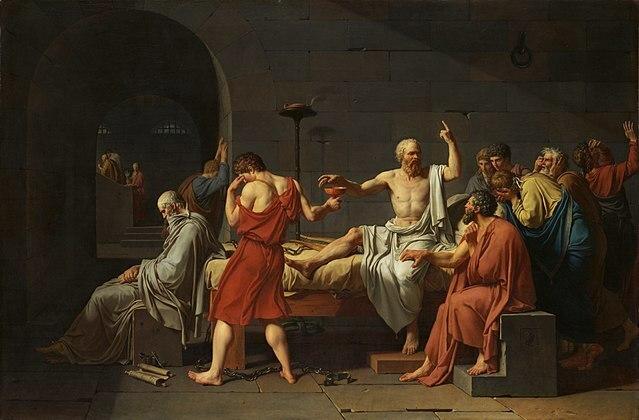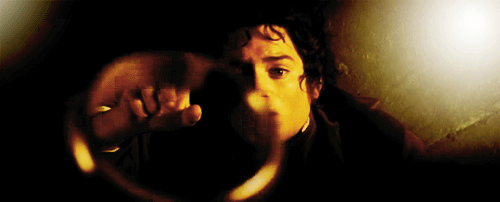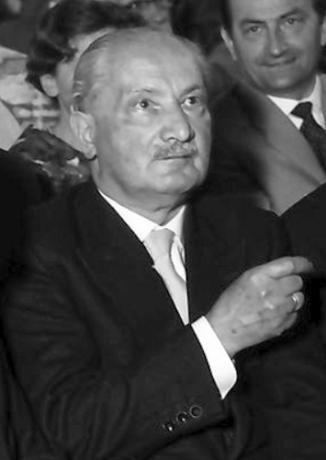the republic is Plato's second longest dialogue (428-347 BC). C.), composed of ten parts (ten books) and covers various topics such as: politics, education, immortality of the soul, etc. However, the main theme and guiding principle of the dialogue is justice.
In the text, Socrates (469-399 a. C.) is the main character, narrates in the first person and is responsible for developing ideas. This is the main and most complex work of Plato, where the main foundations of his philosophy are present.
the republic (Politeia) idealized by the philosopher refers to an ideal city, called Kallipolis (in Greek, "beautiful city"). In it, a new type of aristocracy should be adopted. Unlike the traditional aristocracy, based on goods and tradition, the philosopher's proposal is that it has knowledge as a criterion.
Kallipolis would be divided into knowledge-based social strata and would be ruled by the "philosopher-king". The magistrates, responsible for the city's government, would be those who possess a natural aptitude for the knowledge, and only after a long period of training would they be prepared to occupy the appropriate positions.
This system of government is called sophocracy, which comes from the Greek words sophros (wise) and kratia (power) and is represented as "the government of the wise".

* P.Oxy or POxy represents the Oxyrhynchus Papyrus, a series of ancient texts found in an archaeological dig in Egypt. the excerpt from the republic, by Plato, is cataloged as LII 3679
The Death of Socrates and the republic
It is important to realize that Socrates' death was very important for the continuity of Platonic philosophy. Partially motivated him to propose an ideal city and his criticism of the democracy, present in the work.
Socrates was sentenced to death, accused of heresy and corruption of the Athenian youth. He was tried in a democratic court in which the citizens of Athens participated.
For the philosopher, democracy is unfair because it allows an ignorant person to have the same value as a sage, within political deliberations.
In this way, injustices are committed. For him, the criterion of the majority, the basis of democracy, has no validity whatsoever since, in many cases, such as Socrates', the majority can be wrong and democratically unjust.
Is on THERepublic which presents the famous Myth of the Cave, proposed by Plato, a metaphor for the life of Socrates and the role of philosophy.

Justice, the Main Theme of the republic
Justice is the main concept developed in the republic. The entire text revolves around the attempt to define this concept by Socrates and their interlocutors.
Plato believes that justice is the greatest of all virtues and understands that, in order to practice it, it must be defined. The first two books are dedicated to the theme and show the difficulty of defining such an important and complex concept as justice.
Book I
The first of ten books in the work the republic, which consists of a Socratic dialogue created by Plato, begins with Socrates' trip to Cephalus' house.
There, Socrates, inspired by the Olympic Games that were taking place, seeks to define what justice is. Without success, his interlocutors try to find the best definition that will handle the concept.
Cephalus, an old merchant "on the threshold of old age" who lived comfortably in Athens, is the host of the meeting. When questioned, he states that the justice is telling the truth and restoring what belongs to the other.
Socrates refutes this definition. Céfalo leaves and leaves the debate with his son, Polemarco. This, after some debate, defines the justice as the act of giving benefits to friends and harms to enemies.
Again, the definition is refuted by Socrates, who claims that evil will never be an act of justice. Therefore, harm is not a positive act as justice demands.
After this debate, Thrasymachus, one of the sophists, accuses Socrates of not wanting to find any definition and just playing with words and disagreeing without offering solutions.
Thrasymachus says he has a good answer and says that the justice is what is advantageous to the strongest. In this case, the government.
Socrates, again, disagrees and shows that the entire debate has been sidetracked on the nature of justice. He says that the discussions were about what is advantageous: justice or injustice and that he remains without knowing anything about the subject.
Book I of the republic ends with that statement.
Book II
the second book of the republic it begins with the same attempt to establish the nature of justice. One of the interlocutors, Glauco, makes an apology for the injustice, citing the Myth of the Ring of Gyges.
With him, Glauco shows that people suffer from the injustices practiced against them, but benefit from the practice of injustice and corruption. In this way, all people who have the opportunity corrupt themselves and practice injustices for their own benefit.
In the Myth of the Ring of Gyges, a sheep herder in the midst of a storm finds a corpse wearing a ring. He takes this ring for himself and when he returns to the city, he realizes that this ring gives him the gift of invisibility.
Gyges the shepherd enters the palace, seduces the queen and conspires with her to kill the king. After the murder of the king, he takes his place and rules tyrannically.

Based on the narrated myth, Glaucus hopes to have convinced Socrates that justice is not a virtue in itself, but that it appears to be just, since everyone is corruptible.
However, the refutation of this argument, this time, does not come from Socrates, but from Glaucus' brother Adimanto. He says that one can think differently from his brother, that justice is a virtue (not in itself, but in the effects that it generates), and that, finally, the righteous are rewarded, either by the gods or by the recognition of those who remain after their death.
Socrates praises young people, but he does not believe that there will be a solution to the problem of justice until they abandon the thinking about specific issues and thinking more broadly, giving an account of the whole of justice to understand what it is in soul.
Both agree that Thejustice is preferable to injustices and if so, they need to create an order for justice to be possible. The philosopher directs the conversation towards the idealization of a perfect city.
Only in Book IV does Socrates seem to arrive at a definition of justice as being the balance and harmony between parts of the city.
Plato's Ideal City
In the next books of the republic, guided by the idea of justice, the three (Socrates, Glaucon and Adimanto) seek to define the ideal city.
For this, they define that the city should be divided into three parts, and that perfection would lie in the harmonious integration between them.
The first, simplest class of citizens would be devoted to the most trivial actions relating to the sustenance of the city, such as the cultivation of the land, handicrafts and commerce. Those responsible for these activities would be those who possessed in the constitution of their soul, hay, iron and bronze.
Second-class citizens, according to Plato, would be a little more adept by having silver in the mixture of their souls. These, called warriors, would protect the city and constitute the army and its auxiliaries in the public administration.
The third, noblest class of citizens would study for fifty years, would devote themselves to reason and knowledge, and would constitute the class of magistrates. These would be responsible for governing the city, as only they would have all the wisdom that the art of politics requires.
Justice understood as a virtue could only be practiced by the holder of knowledge dedicated to reason. The latter could control his emotions and impulses and rule the city fairly.
Citizens are divided into groups according to their performance and the level of knowledge needed to carry out their activities. Only acting in accordance with the soul's natural determination can bring balance and harmony between the parts.
the soul in the republic
The composition of the human soul could contain bronze, silver or gold and this would determine to which of the three classes of the republic each person would belong.
The Platonic soul, like the republic's society, is also divided into three parts:
| part of the soul | Location in the Body | Occupation |
|---|---|---|
| Rational | Head | Reason, search for knowledge and wisdom. Controls the other parts of the soul |
| Irascible | Heart | Emotions and feelings. Develops courage and impetuosity |
| appetitive | underbelly | Sexual desires and appetites. Develop prudence and moderation |
For Plato, the rational part of the soul is the most developed part by philosophers, who from it, control the others.
In another text, Plato makes an allusion that reason is like the reins responsible for controlling two horses in a carriage.
For this reason, philosophers should be responsible for the government of the city, as they are not susceptible to emotions and desires.
Plato states that the soul, like the city, obtains its fullness through the harmonious relationship between the parts that make up the whole.
In the book, Plato develops the idea of the immortality of the soul and its relationship to knowledge, continuing the theory of Socratic reminiscence.
The philosopher affirms that the soul, being immortal and eternal, belongs to the world of ideas and there it can apprehend all existing ideas and thus possess all possible knowledge.
At the moment of union of the soul with the body, the soul would forget this knowledge. Only through the search for knowledge is the soul able to remember what it already knew.
Thus, in Book IV of the republic, Plato seeks to reconcile the opposing philosophies of Heraclitus (c.540-470 a. C.) and Parmenides (530-460 a. Ç).
heraclitus claimed that the universe was in a constant motion of change (becoming). Plato associates this constant transformation to the sensible world, where everything suffers the action of time and has a duration: it is born, grows, dies and renews itself.
In Parmenides, he extracted the idea of permanence and associated it with his world of ideas, where everything is eternal and immutable (permanent).
These are the foundations of Platonic dualism and its distinction between the body (sensible world) and the soul (world of ideas).
Education in the Republic
In the republic, education would be the responsibility of the State and families would have no participation in creation. The State would be responsible for educating individuals and directing them to the activities most suited to their type of soul (bronze, silver or gold).
It is at this moment that Plato makes a harsh criticism of Greek education, especially poetics. For him, poetry would misrepresent individuals from the idea that the gods are holders of human characteristics such as: compassion, predilection, envy, rancor, etc.
These gods, humanized by poetics, would serve as a model of corruption for individuals. Humanization would make the gods question their role within society and aim at social transformation.
Plato proposes that all individuals receive a general education based on the city's values. This education would shape the character of each of its students, making them aware of their role within society.
After a period of twenty years, the first individuals formed would be those who have hay, iron and bronze in the constitution of their souls. They would be responsible for the manufacture of artifacts, food production and trade.
The warriors would receive another ten years of training and after that period, they would be able to defend the city and hold auxiliary positions in the public administration. The silver mixed in their souls determines their suitability for this type of action.
With fifty years of training and several tests, the possessors of souls with gold, dedicated to studies and reason, would assume the positions of magistrates and would be responsible for the city's government.
Plato shows that only the most enlightened can rule fairly, based on reason.
See too: Greek Paideia: Education in Ancient Greece.
Cave myth

It is also in the republic that Plato writes one of his most famous passages; The Myth of the Cave.
In the passage, Plato narrates the trajectory of a prisoner in a cave, who, dissatisfied with his condition, breaks the chains and leaves the place for the first time in his life.
This prisoner, now free, after contemplating the world outside the cave, feels compassion for the other prisoners and decides to return to try to free them.
When trying to communicate with the other prisoners, he is discredited, thought to be insane and finally killed by his fellow prisoners.
With this metaphor, Plato sought to demonstrate the role of knowledge, which for him would be responsible for freeing individuals from the prison imposed by prejudice and mere opinion.
The exit from the cave represents the search for knowledge, and the philosopher is the one who, even after freeing himself from the shackles and reaching knowledge, is not satisfied.
Thus, he feels the need to free others from the prison of ignorance, even though it may cause his death (as happened in the case of the prisoner of allegory and Socrates, master of Plato).
Bibliographic references
The Republic - Plato
Introduction to the History of Philosophy: from the pre-Socratics to Aristotle - Marilena Chauí


